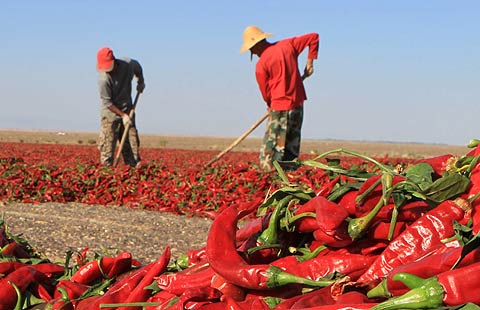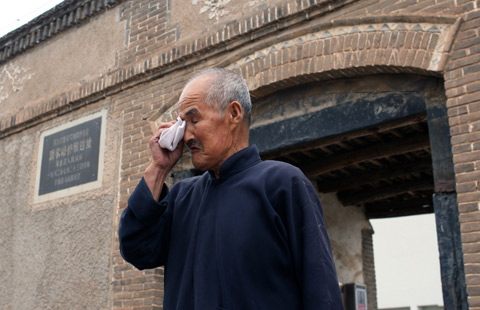World Buddhist Forum opens in HK
(Xinhua) Updated: 2012-04-26 12:52Panchen Lama speaks on dharma
The 22-year-old Panchen Lama said there is a contemporary trend to put "materialistic technology" ahead of the "science of the mind" and "science of the mind" stands out as a path leading to harmony of the nature, peace in the world, concordance in societies and affection in families.
In religion, Dharma means law or natural law and is a concept of central importance. For many Buddhists, the Dharma most often means the body of teachings expounded by the Buddha. The word is also used in Buddhist phenomenology as a term roughly equivalent to phenomenon, a basic unit of existence or experience.
"Since the prosperity of Dharma in ancient India ... Significant contributions to the development of human societies, ethics and cultural education have been made," the 22-year-old Panchen Lama said. Buddha was a spiritual teacher from India on whose teachings Buddhism was founded.
However, he added "increasing greediness in people's hearts has unbalanced the eco-systems, contaminated the environments, caused natural disasters, spread epidemics, induced wars and hence endangered all sentient beings now and in future."
While people are searching for the remedy, "science of the mind" stands out as a path leading to harmony of the nature, peace in the world, concordance in societies and affection in families, he said.
Dharma advocates altruistic care for all beings, purification of body, speech and mind, salvation for all sentient beings and the achievement of the two supra-mundane states. Buddhist Doctrines are the essence of the "science of the mind", which can benefit spiritual growth, cultivate morality, dissolve human conflicts and mental sufferings and bring global peace, he said.
"As the sole medicine for the sufferings, And the source of all happiness, May the teachings, with support and respect, continue to exist endlessly in the world," Panchen Lama quoted Santideva Bodhisattva, an 8th-century Indian Buddhist scholar, as saying.
"Therefore, the promotion of Dharma is a very important issue for the contemporary world," Panchen Lama said. "Inheriting and developing Dharma is the utmost mission for all Buddhists."
All Buddhists should also work towards an organic synergy of "science of the mind" and "materialistic technology" as it would contribute to global peace, social harmony, and cultural development, he added.
Buddhism good for better world
In his speech at the opening ceremony, President of the Hong Kong Buddhist Association Kok Kwong said the theme of the forum conforms to the development of the times and coincides with the Buddhist concepts and ideas.
The 93-year-old Kok Kwong also called on people to reach a common understanding and make contributions to creating a better world of equality, prosperity, happiness and harmony.
Chuan Yin, president of the Buddhist Association of China, said in a speech that "harmony is the shared aspiration of all humans."
He explained that in the context of today's circumstances, if we all carry with us an attitude of gratitude and cleanse our thoughts hand in hand, we may then find a peaceful and benevolent mind in people. If we are tolerant with each other, we can then have a peaceful and harmonious society.
Hong Kong's Chief Executive Donald Tsang said Buddhism has profound and deep influence on the Chinese culture and Hong Kong boasts more than 1 million Buddhists. "They practice Buddhist doctrines, promote the Dharma, serve the society and make big contributions (to Hong Kong)," he said.
After the launch ceremony, famous Chinese singer Wang Fei sang the song "Heart Sutra". The theme song of the forum "Common Aspirations and Action" was also performed by several Hong Kong artists.
Co-founded by the four Chinese regions, the World Buddhism Forum is aimed at building an equal and open platform for high- level dialogues in the world of Buddhism. The first forum was held in China's eastern Zhejiang Province in 2006. The second forum was opened in the eastern Jiangsu Province and closed in China's Taiwan in 2009.
- Hong Kong barricades taken down by police
- College sacks prof over sex harassment claims
- China sees tech cure for healthcare woes
- More two-way investment benefits China, Italy: Premier Li
- Chinese premier arrives in Rome for official visit to Italy
- Beijing given central funds to curb pollution
- HK police vow minimum force to remove protest road barriers
- Two expelled over street monkey show in C China
- Chinese VP calls for closer China-Russia youth exchanges
- Premier Li vows to safeguard WWII victory with Russia







